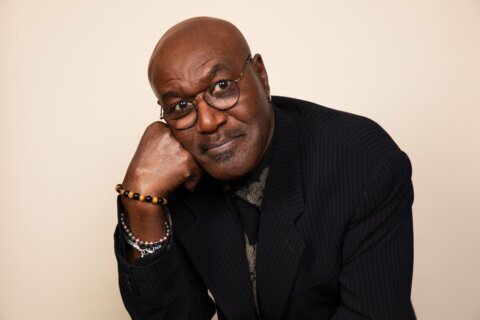It’s hard to find someone more supportive of Black arts in D.C. than Simone Eccleston.
Her her day job is the director of hip-hop culture & contemporary music at the Kennedy Center.
“We collaborated with Lyricist Lounge [for] a triple bill featuring Rakim, KRS-One and Slick Rick,” Eccleston told WTOP. “We have an upcoming presentation with MC Lyte celebrating women in hip-hop called ‘I Am Woman.’ We’ve worked with Robert Glasper presenting his two-week residency … [and] we have a two-year ongoing residency with The Roots.”
Now, Eccleston is launching an exciting new venture called the Black Genius Foundation.
“The Black Genius Foundation seeks to transform the conversation around genius by placing Black artists and the Black creative ecosystem at the center,” Eccleston said. “It was borne out of my two-decade career celebrating and investing in the creative genius of the African diaspora … at organizations like Harlem Stage [and] the Kennedy Center.”
The 20-year goal is to provide 476 awards distributing $12.9 million to 436 artists, 240 arts projects and 20 arts organizations, deriving 51% of funds from Black philanthropists.
That includes eight Black Genius Prizes this inaugural year, ranging from $75,000 to $100,000 for artists and $25,000 for arts journalists, scholars and professionals.
“The Black Genius Prize provides unrestricted funds to artists, arts professionals, arts organizations, journalists and scholars,” Eccleston said. “This is about being able to provide unrestricted support that will hopefully continue to seed their creativity, provide them the opportunity at times to take rest or make different choices.”
Established artists can also apply for the Strokes of Genius program.
“Strokes of Genius is an open-application program to provide artists with support to develop new work,” Eccleston said. “Our goal is to provide artists with resources. … It may be studio time, the acquisition of materials, for journalists and scholars it might be having the resources to conduct research, having time to complete your writing process.”
Rising artists will benefit from the Future Genius program.
“It’s for emerging professionals … artists that are emerging in their career … who demonstrate promise,” Eccleston said. “All of it is cyclical, so being able to build our cohort and our community of artists … then having them help support and nurture the next generation. Part of it is mentorship, part of it is professional development opportunities.”
In the end, it’s all about sparking and preserving Black creative genius.
“This canon of work, of critique, of scholarship has served as documentation of our experience and has been emblematic of genius,” Eccleston said. “It ensures that people know that we were here and that our contributions have been meaningful and profound. This work with this beautiful community of individuals … builds on that tradition.”
Listen to our full conversation here.








